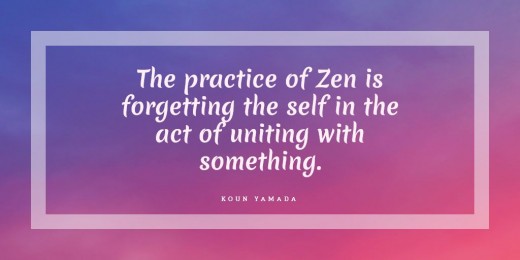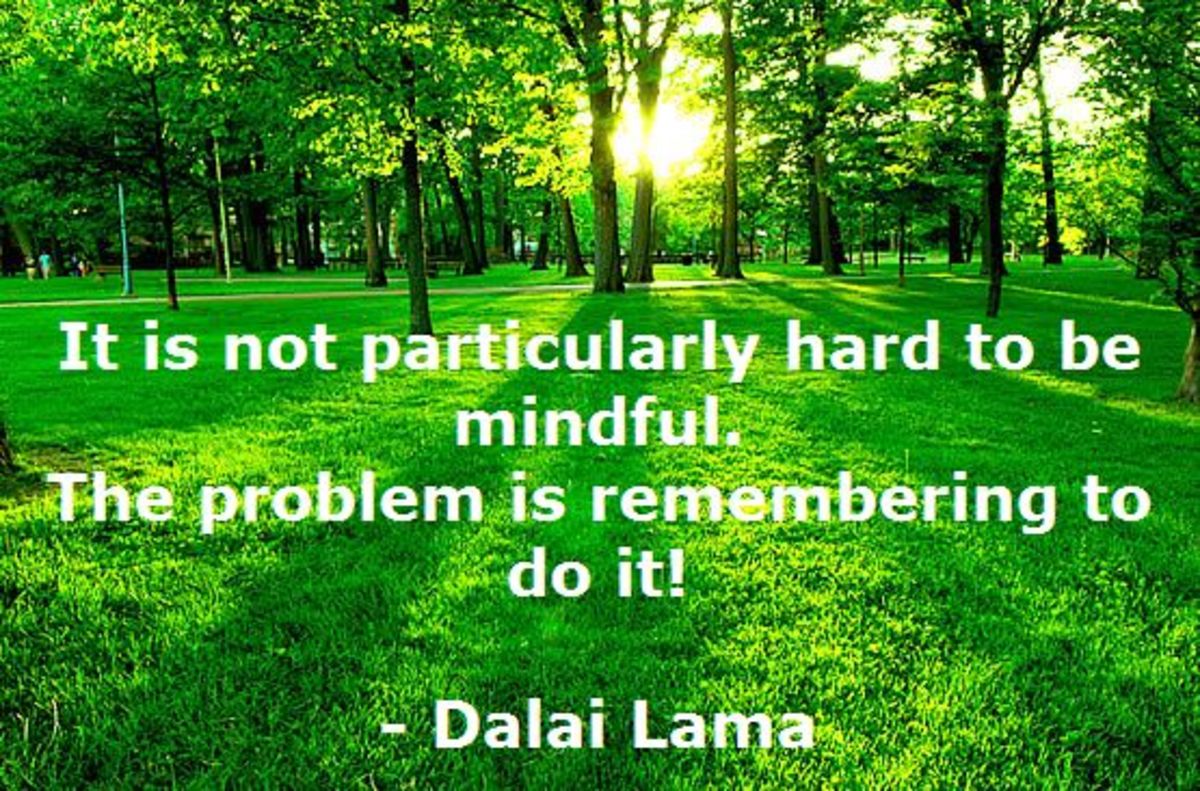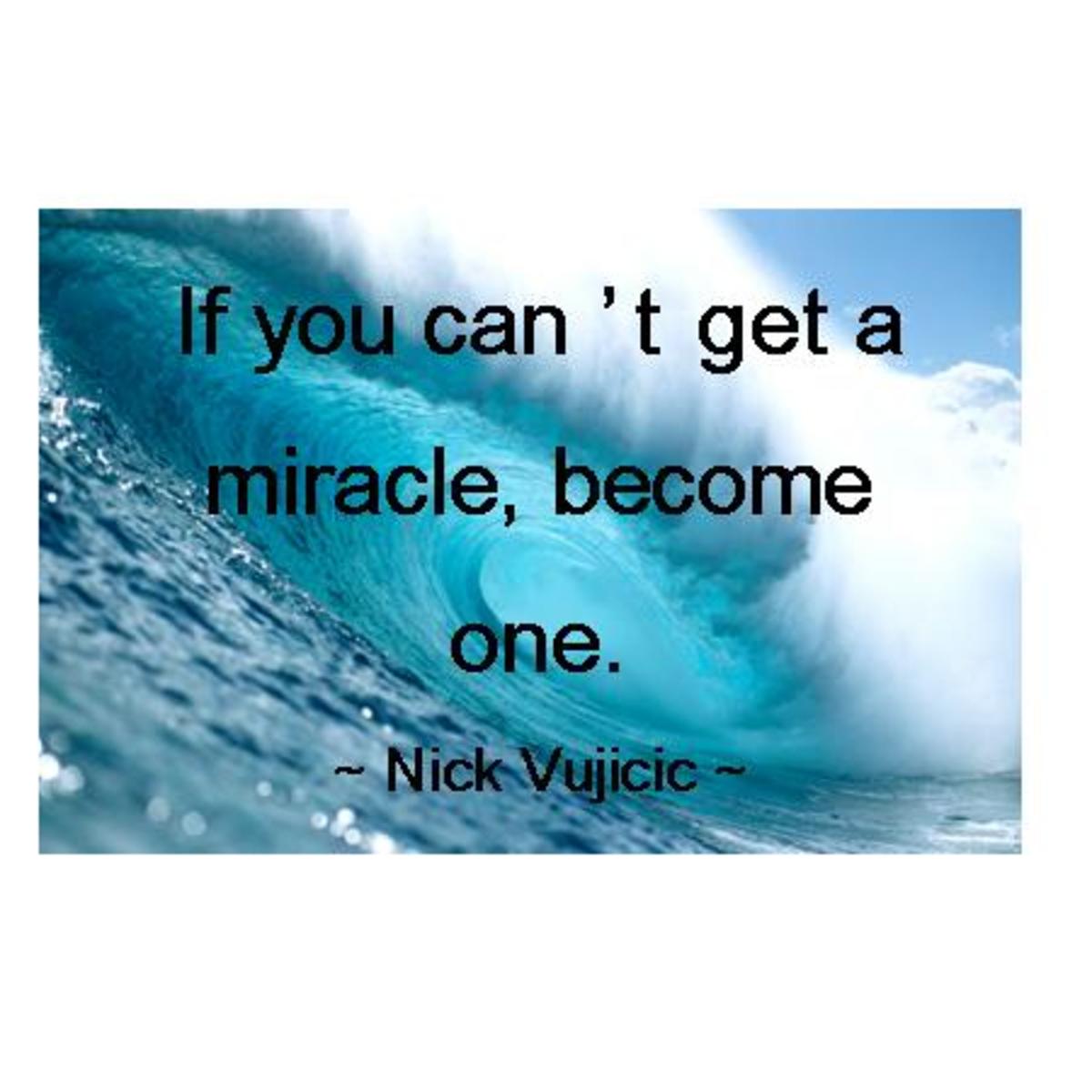Living Life with Zen

Zen has been described variously by many. And that is why it is a bit confusing for some. Zen is a state that involves a total focus on the present moment, incorporating total togetherness of body and mind. It is a way of being. It is also a state of mind. Zen involves dropping illusions and seeing things without distortion created by our own thoughts. It is a state when we are looking at the reality of things with total detachment. For many, Zen appears to be mumbo-jumbo without real meaning.
Besides much confusion about what Zen is, it can be conveniently described as a state of mind, having the following characteristics:
- It is an attitude of mind.
- It is the peace that comes from being one with an entity other than you.
- It means being aware of your oneness with the world and everything in it.
- It means living in the present and experiencing reality fully.
- It means being free of the distractions and illusory conflicts of the material world.
- It means being in the flow of the universe.
- It means experiencing fully the present, and delighting in the basic miracle of life itself
“Zen” is a Japanese pronunciation of the Chinese word “Chan”, which in turn is the Chinese translation of the Sanskrit word “Dhyana”, which means meditation.
Zen is actually used as a short form for Zen Buddhism, which is a Mahayana movement introduced into China in the sixth century and into Japan in the twelfth century. It emphasizes enlightenment for students by direct possible means.
The practice of Zen involves becoming fully aware of here and now. Living in the present moment is where we should be truly living. Thinking actually takes us far into the past or into the distant future. Both past and future are fantasies since the future isn’t known and our memories of the past are often distorted accounts of what actually happened. Zen exhorts one to come to one’s senses when one is lost in the thoughts of the past or future. When one mindfully dwells in the present moment, one completely dissolves into what is happening then. One actually becomes the activity. One’s sense of separateness dissolves into the experience of the moment. Such a peak experience is Zen.
Benefits of Zen living – Some important benefits are listed below:
- It reduces stress and anxiety.
- It improves the clarity of mind.
- It helps reduce chronic depression.
- It improves sleep.
- It raises self-confidence and trust in oneself.
- It strengthens relationships.
- It strengthens our faith.

Living with Zen – To heighten the presence of zen, one should practice integrating the following in one’s daily activities.
- Live in the present - One should live every moment to the fullest. When we function fully in the present moment, it becomes alive. And we become virtually free from the bondage of the past and future.
- Do one thing at a time – Doing so, one is able to concentrate better at the task being performed. The outcome is much better as one is mindful when performing one task at a time. On the contrary, multitasking prevents one from being mindful while performing more than one task at a time because the focus keeps on shifting from task to task. Moreover, the outcomes of the tasks so performed are not satisfactory.
- Do it slowly and deliberately – Doing so, one is more likely to develop mindfulness in the task being done. When one does the task mindfully, then it becomes enjoyable and satisfying.
- Designate time for certain things – In this way, an individual will be able to do certain routine things with ritual mindfulness, thereby enabling one to enjoy the experience of Zen while performing those things.
- Smile and help others – Smiles have a magical power that can dramatically transform the mood of a person to happiness. It inspires positivity in the other person. Similarly, helping others also spreads happiness in the person who helps as well as the person who is being helped.
- Transcend dualism - Zen requires transcending dualism. As long as we cling to dualism, we face conflicts and anxiety. The best way is to drop discrimination by transcending dualism. Our world will become bright when we do so. Dualistic discrimination between hate and love, right and wrong, good and evil makes the human beings prey to rigid dogma. And, therefore, they cannot experience real freedom. Maintaining inner stillness when experiencing conflicting dualistic states is, in fact, a pre-requisite to the presence of Zen in life.
- Respect your self - We should respect our body and mind, and involve them fully in creating the presence of Zen in daily activities. Buddhism essentially denies any dualism between body and mind.
- Reduce overdependence on modern technology - We have increasingly become obsessed with science and technology and, as a result, we have lost touch with the essential humanity. To practice Zen, we have to develop a sort of partial estrangement from science and technology in order to restore our intensity of awareness. The fact is that we cannot do without modern technology but we can set our personal limits to its use so that we can also attend to the development of our consciousness.
- Develop creative altruism and benevolence – Non-egoism and creative altruism go hand in hand. According to the universal law, by performing benevolent acts, one benefits oneself and others.
- Make daily chores a Zen experience – For women cooking and cleaning are great ways to practice mindfulness. Cooking and cleaning may seem boring chores to many but put your entire mind into those tasks, concentrate, and do them slowly and completely. They will become a form of meditation. In fact, we can make all daily chores acts of meditation by doing them mindfully. They can actually be wonderful ways of keeping us grounded in the Now, contributing greatly to our Zen experiences.
- Live simply – There is little in a Zen practitioner’s life that isn’t necessary. But there is much in our lives that aren’t necessary. It can be useful to give some thought to what we really need, and whether it is important to have all the stuff we have that’s not necessary. You should consider what is most important to your life, and make room for that by eliminating the other less essential things in your life.
The bottom line –
What Zen is, is misunderstood by many, but still many of us, in fact, practice it unknowingly in many situations. Looking at an array of beneficial effects of its practice, we may be tempted to have those benefits. Though it is not difficult to have those benefits, we require creating a specific state of mind before we experience them.
In reality, many will find a clue in Zen to a fresher approach to life. Real living begins, when one develops an ability to understand the reality of the moment - a pre-requisite to living with Zen.







